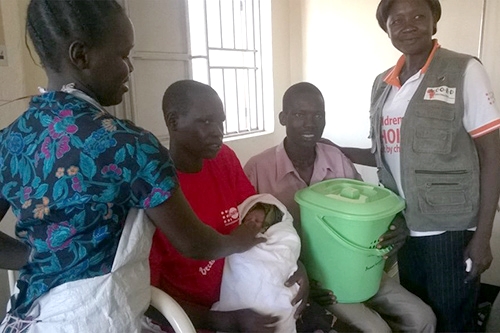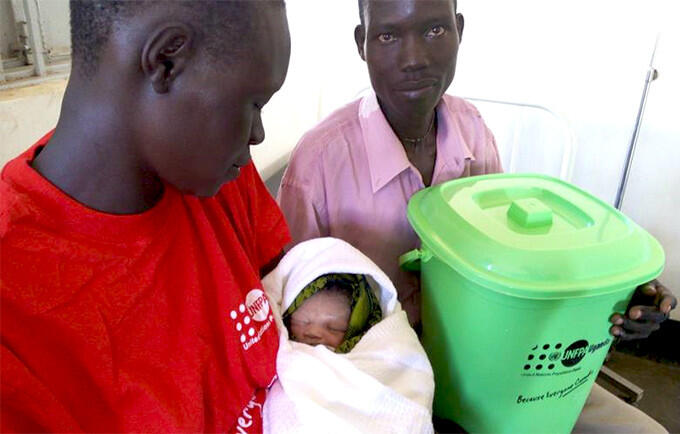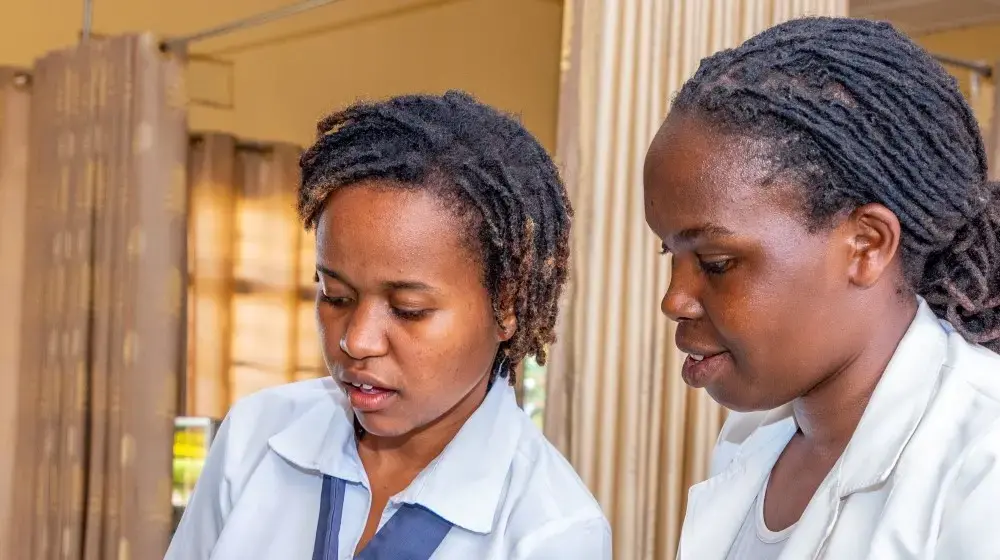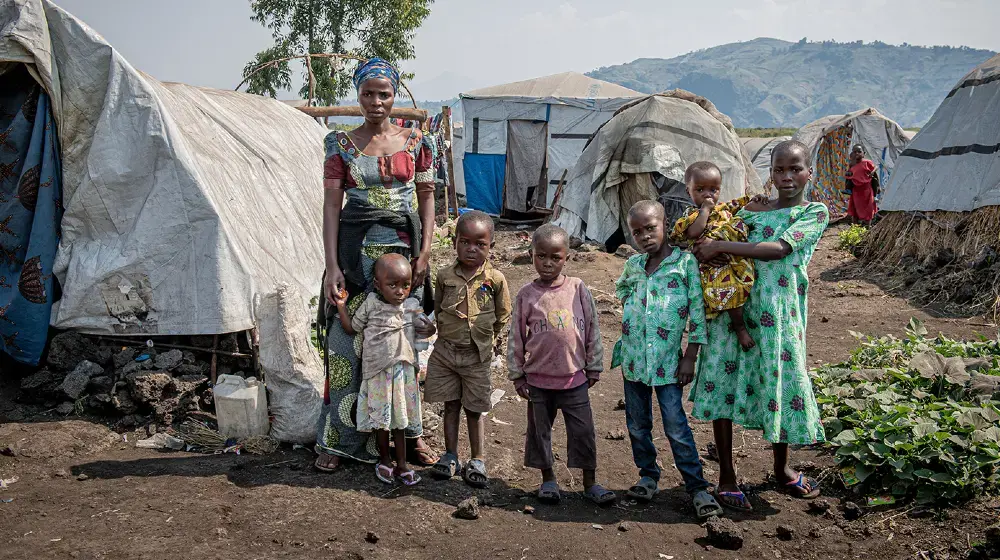ADJUMANI DISTRICT, Uganda – Things looked bad for the family of Flora and Patrick Anduga in war-ravaged South Sudan. The couple increasingly feared for the safety and welfare of their two children – and the baby they were expecting.
The country is years into a grinding conflict, which has left nearly 5 million people in need of humanitarian assistance.
“There is a strong risk of violence escalating along ethnic lines, with the potential for genocide,” Adama Dieng, United Nations Special Adviser on the Prevention of Genocide, recently said in a statement.
Pushed to the brink, the Anduga family fled, crossing the Nimule border and arriving in Uganda in July of 2016.

Looking for pregnancy care in a new country
They were settled in Maaji III, a refugee settlement in Uganda’s Adjumani District created to help absorb the large numbers of South Sudanese refugees streaming into the country.
But their fears were not over.
Ms. Anduga, 24, was worried about giving birth in the new environment. In her home village, she had relied on a traditional birth attendant, a person without formal health training. She did not know how she would manage in Maaji III.
Fortunately, a volunteer working with ACORD – a UNFPA-supported organization – reached out to her.
"I was approached by a community volunteer who registered me and advised me to go to the nearest health facility," Ms. Anduga recounted.
She was also encouraged to receive antenatal care and to give birth in a health facility, under the skilled care of a nurse, midwife or doctor.
An anomaly: Husband’s help
Mr. Anduga, 26, did not want his wife to navigate the unfamiliar health system on her own. Together, they visited the UNFPA-supported Ayiri health centre, not far from their new home.
This was something of an anomaly for people from their community. Most men do not support their wives’ pregnancy health because they consider it a 'women’s issue', Mr. Anduga explained.
"I escorted her during her last antenatal care visit at this health facility, and they encouraged me to bring her back when labour starts," he said.
When Ms. Anduga went into labour, her husband was eager to help. "My husband supported me by escorting me to the health centre," she said.
"We came this morning,” Mr. Anduga said, shortly after the baby was born, "and we were welcomed by the midwife who was on duty."
The labour proceeded without complications.
"I was extremely happy to see my wife through this period," he said, "and she has delivered a beautiful baby girl."
Role models
Mr. Anduga and his wife also learned about the benefits of birth spacing, which can improve health outcomes for both mother and child.
He is eager to share this and other health information they have learned – such as the importance of antenatal care and skilled help at birth – with other men in his community.
"I will continue to encourage my fellow men to escort their wives during antenatal care visits and during labour so that they understand what women go through during this process," he said. "Most importantly, women require special care during these times."
UNFPA and ACORD provide a wide range of support to refugees in Adjumani District, including strengthening the health system, providing health care and education, and preventing and responding to gender-based violence. UNFPA also distributes reproductive health kits to health workers and supplies dignity kits – which contain essential hygiene items, including menstrual pads and soap – to women and girls.




